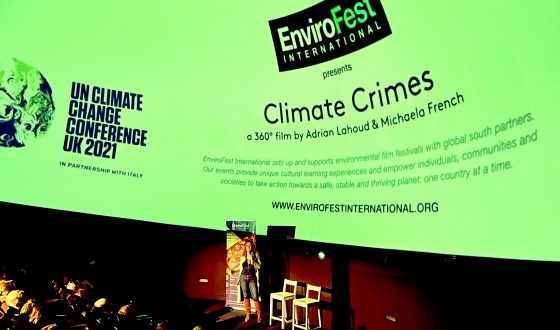We have gotten so far in terms of climate emergency with lots of facts and science and high level communication, but culture has not started to scratch the surface in terms of the role it has to playThe DOC Society
EFI in the Green Zone
With ambitious leadership largely absent from the formal negotiations, COP 26 shone a spotlight on the importance of non-state actors and public engagement in creating social change that will pressure leaders into action. This was re-enforced by the enactment of the UNFCCC Action for Climate Empowerment (ACE) which promotes the pivotal role of communication and education in fostering public agency and active societal engagement with the transition to a sustainable future.
DYNAMIC EXCHANGE
Green Zone Programme
The role of the public and mainstream society in transitioning to a climate resilient and sustainable future are central to the EFI mission, so it is encouraging to see more emphasis being placed on the communication, education and engagement needed to achieve this. EFI’s series of events in the Green Zone explored the role of culture and film as highly effective communication tools to foster public engagement and build agency for change.
5 events - sell out!
Planetarium Film and Debate
5 film screenings 15 panelists 600 people
Using the pioneering film Climate Crimes as a launch pad, each event was followed by a panel discussion with film maker Adrian Lahoud and experts in climate science, communications, community engagement, and impact campaigning from: BAFTA (Albert), University of Leeds, Royal College of Art, Element Four, Ocean Generation, DOC Society, YMCA, Climate Outreach, If not us then who, Great Green Wall, Climate Ready Hawai’i

I hope this film will be shown in planetaria all around the world because people need to understand the impact of what they are doing in places so far awayJo Ruxton, Ocean Generation
